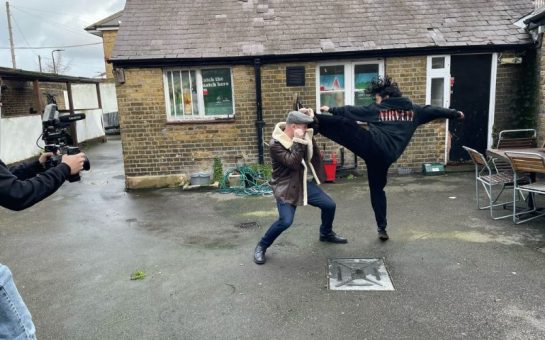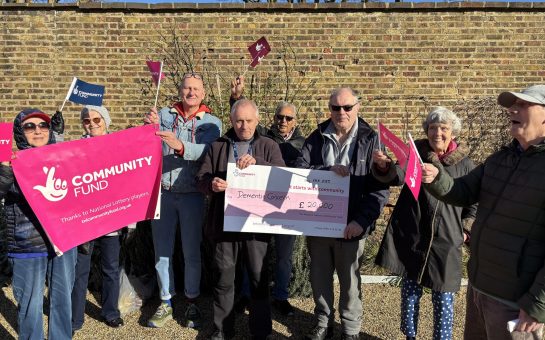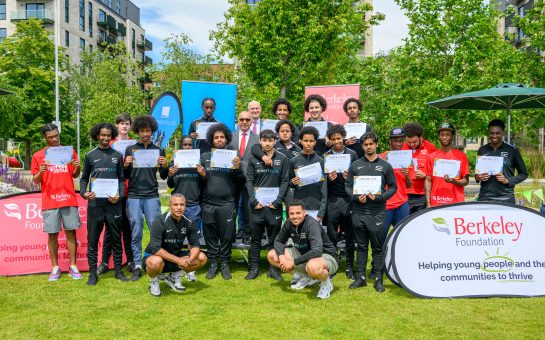“In the beginning I was completely paralysed, apart from being able to wiggle one of my toes.”
New mum Laura Rawlinson was diagnosed with Guillain-Barré syndrome (GBS) in May 2019 when her baby daughter Ella was only nine months old.
Laura, a 37-year-old compliance manager from West Sussex, is only now beginning to return to work after a nearly two-year battle with the condition that left her paralysed and unable to care for her baby.
Her husband James looked after their daughter throughout her long stay in hospital and during her recovery at home.
The illness developed after a chest infection, as Laura woke up with double vision in her eyes, then she noticed a tingling sensation in her arms and legs, which was followed by a long stay in hospital.
Laura was admitted into intensive care, intubated and given a tracheotomy.
She was on a ventilator for three months before being moved to a rehabilitation centre.
At its worst, Guillain-Barré syndrome left her paralysed to the point of being unable to blink her eyes.
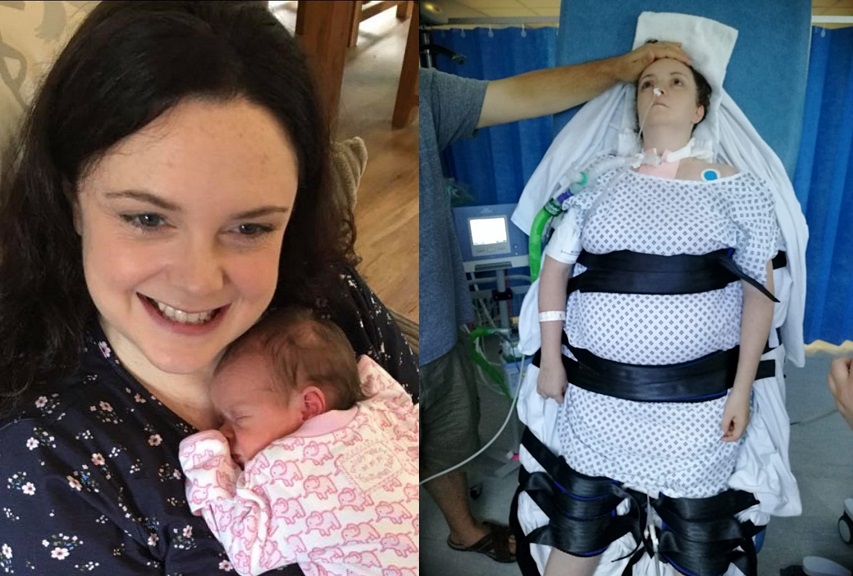
She said: “It’s very strange to not be able to feel your body but to feel loads of pain.
“You can’t tell someone where your pain is or what is happening.
“You can’t scream or shout or say this hurts or that hurts.”
When she regained feeling in her toes, she was given a keyboard to tap her feet on to communicate.
GBS is an auto-immune disease that attacks and damages peripheral nerves, leaving sufferers paralysed.
The nervous system attacking syndrome is typically triggered by an infection, like a chest infection or gastroenteritis.
It remains active in the body for six weeks, and the sooner it’s treated the more likely the sufferer is to make a full recovery.
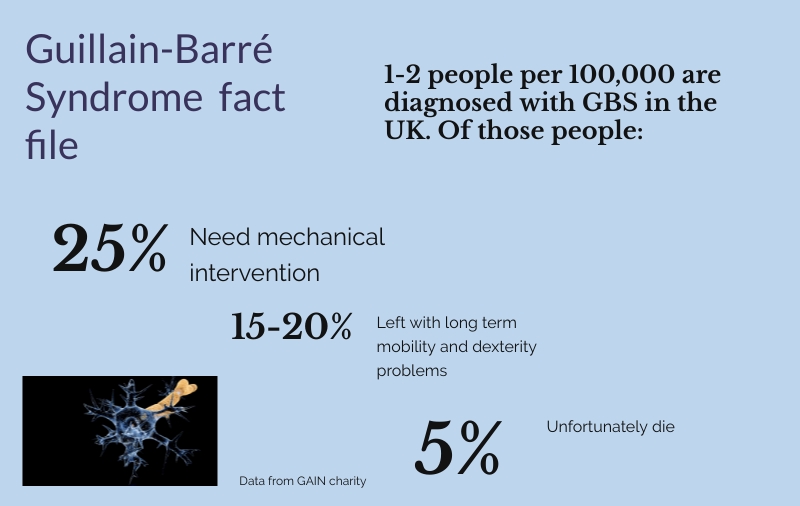
Isobel Taper, 27, Ealing, was at home when she realised she couldn’t feel the water coming out of the taps when she washed her hands.
She was due to start an undergraduate course at university when Guillain-Barré syndrome struck her out of the blue, leaving her temporarily disabled.
You can watch Isobel tell her story here:
It was assumed that COVID-19 could be a trigger for GBS, which led neurologist Dr Michael Lunn of UCL Queen Square Institute of Neurology to study the possibility of a link, concluding that there wasn’t a significant one.
Dr Anthony Fauci MD said in a December newscast that sufferers of Guillain-Barré syndrome should avoid the COVID-19 vaccine as it may lead to a recurrence of the disease.
After Fauci’s statement was publicly aired on television, an open letter to him was written by neurologists and Guillain-Barré syndrome experts.
Following the open letter Dr Fauci amended his statement and said to Neurology Today that after reading the Centers for Disease Control and Prevention (CDC) guidelines, he stood corrected.
The Guillain-Barré & Associated Inflammatory Neuropathies (GAIN) charity was set up to offer help to those suffering from GBS and provide support to their families.
They also raise awareness for the condition within the medical community and fund and facilitate research projects.
Guillain-Barré syndrome isn’t widely known but the impact it has on people can be devastating.
Gill Ellis, GAIN charity said: “Most people have never heard of Guillain-Barré syndrome until either they or someone they know is diagnosed with it.”
A common treatment for Guillain-Barré syndrome is intravenous immunoglobulin (IVIG), which is healthy donated blood administered to the patient to replace the harmful antibodies that attack the nervous system.
People who suffer with GBS often need to undergo tracheotomies and are put on a ventilator.
A tracheotomy involves a hole being surgically opened into your windpipe to put in a tube to help you breathe, and in severe cases it’s attached to a ventilator that breathes for you.
Although Guillain-Barré syndrome remains an enigmatic disease, the release of the documentary ‘Locked in: Breaking the silence’ on BBC Storyville has helped raise awareness of the condition.
More people are beginning to talk about the devastating impact of Guillain-Barré syndrome and survivors hope that the raised awareness will improve treatments for people all over the world.
